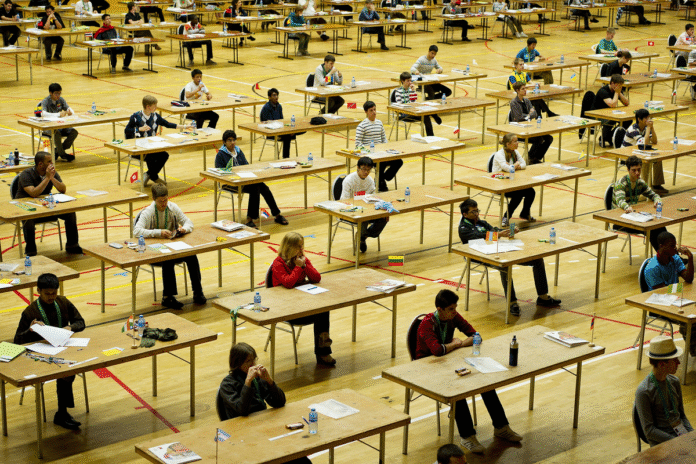Google DeepMind and OpenAI both won gold medals at the world’s most prestigious mathematics competition, marking a major milestone for artificial intelligence.
Experimental AI models developed by the two companies completed the four-and-a-half-hour exam at the International Math Olympiad, each solving five of the six problems.
Both companies claim the latest benchmark brings them closer to achieving general purpose models capable of human-level intelligence, also known as artificial general intelligence (AGI).
Despite both firms achieving a gold medal result, only DeepMind’s result was recognised by the organisers, as OpenAI did not officially enter the competition.
“We can confirm that Google DeepMind has reached the much-desired milestone, earning 35 out of a possible 42 points – a gold medal score,” said Professor Gregor Dolinar, president of the International Mathematical Olympiad.
“Their solutions were astonishing in many respects. IMO graders found them to be clear, precise and most of them easy to follow.”
DeepMind’s Thang Luong and Edward Lockhart said the reasoning capabilities demonstrated by their model would prove “invaluable” for mathematicians, scientists and researchers, while also helping to “advance human knowledge on the path to AGI”.
OpenAI researcher Alexander Wei reported the results online, despite his company not officially entering the competition.
“We evaluated our models on the 2025 IMO problems under the same rules as human contestants: two 4.5 hour exam sessions, no tools or internet, reading the official problem statements, and writing natural language proofs,” he wrote in a post to X.
“Why is this a big deal? First, IMO problems demand a new level of sustained creative thinking compared to past benchmarks.
“[Second], we’ve obtained a model that can craft intricate, watertight arguments at the level of human mathematicians.”
OpenAI is planning to launch the latest version of ChatGPT, powered by its GPT-5 model, in the coming weeks, however it will not include the reasoning abilities featured in its prize-winning bot.
These experimental capabilities will take “several months” before they make it into publicly available AI chatbots, according to OpenAI.
DeepMind did not state when its Gemini Deep Think model would be release. The Independent has reached out for to Google for more information.






